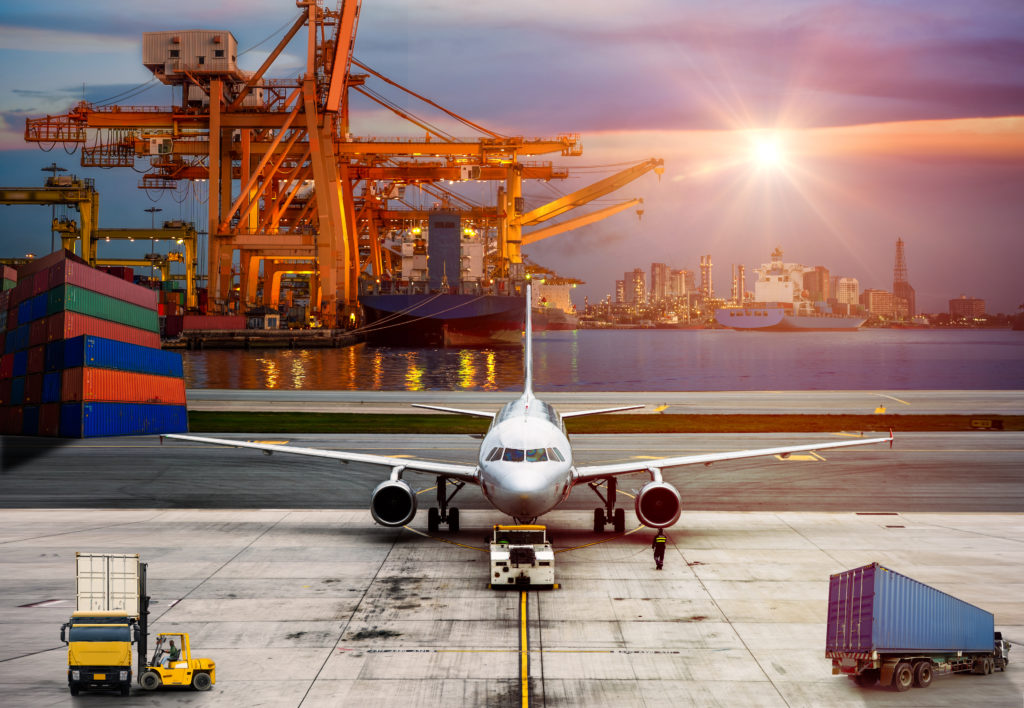Trade Remedy Duties
Trade Remedy Duties
What are Trade Remedies
Antidumping Duty (AD) and Countervailing Duty (CVD)
The most commonly used trade remedies are called antidumping duty (AD) and countervailing duty (CVD). The United States International Trade Commission (USITC) investigates certain alleged unfair practices in import trade. U.S. industries may petition the government for relief from imports that are sold in the United States at less than fair value (“dumped”), which occurs when imported merchandise from a specified country is sold at a lower price in the United States than in its home market, or that benefit from countervailable subsidies provided through foreign government programs (“subsidized”). Dumping and certain subsidizing are considered unfair trade practices. Read more
Foreign Trade Zone (FTZ) and AD/CVD
The Foreign Trade Zone procedures shall not be used to circumvent AD/CVD orders. Items subject to AD/CVD orders will only be admitted to the zone in privileged foreign status. When these items are entered into the Customs territory for consumption, the items shall be subject to AD/CVD procedures as appropriate. Read more…
In-Depth Coverage: Country of Origin
- Country of Origin of Imported Merchandise
- Customs Ruling: Country of Origin
- Country of Origin: Food Products
- Country of Origin: Chemical and Pharmaceutical Products
- Country of Origin & Country of Manufacture: CBP vs. FDA
- Country of Origin: Substantial Transformation or Country of Assembly Test
- Country of Origin and Free Trade Agreement
- Country of Origin and Section 301
Section 201
Trade Remedy on Solar Cells and Panels, and Washing Machines and Parts
Section 201 or “safeguard” actions are designed to provide a temporary “safeguard” in order to facilitate positive adjustment of a domestic industry to import competition. “Positive adjustment” in the law means the ability of the industry to compete successfully with imports after termination of the safeguard measure, or the industry’s orderly transfer of resources to other productive pursuits; and the ability of dislocated workers to transition productively. Read more…
Section 232
The tariffs are authorized under Section 232 of the Trade Expansion Act of 1962. These tariffs cover nearly all importation of steel and aluminum products into the United States. The justification under this law is that it is a national security need that the USA imports less steel and aluminum and therefore must have the ability to produce it domestically. Read more…
Section 301
Section 301 tariffs were imposed on Chinese products in response to the investigation of the Office of the United States Trade Representative (USTR) that found the government of China was engaging in unfair trade acts, policies, and practices related to the unreasonable and discriminatory transfer of American technology, intellectual property, and innovation. Read more…
In-Depth Coverage: Trade Remedies
In-Depth Coverage: Marketing and Advertising Compliance
- Federal Trade Commission (FTC) Advertising Rules
- Made in USA Standard
- FTC Regulation on Environmental Claims
- Adverting and Marketing on the Internet
- Label Claims for Conventional Foods and Dietary Supplements
- Dietary Supplement Advertising: What is FTC's Truth-in-Advertising Law?
- USDA Country of Origin Labeling (COOL)
- FTC Rules & Regulations on Food Advertisement
In-Depth Coverage: Importing Cosmetics
In-Depth Coverage: Importing Medical Device
Customs Clearance and Import Requirements
- Entry of Imported Merchandise
- What is Section 321 Entry?
- What is Automated Commercial Environment (ACE)
- What is an Automated Broker Interface (ABI)?
- Who is Ultimate Consignee?
- What is Non-Resident Importer Program?
- Country of Origin of Imported Merchandise
- What is the Country of Assembly?
- What is the FDA's Country of Manufacture?
- Marking of Country of Origin on U.S. Imports
- What is Customs Bond?
- Reconciliation Prototype and Bond Rider
- Who Needs a Customs Broker?
- What is Customs Ruling Program?
- Classification of Imported Goods
- How is imported merchandise appraised?
- What are Import Quotas?
- What are Trade Remedy Duties?
- Antidumping Duty (AD) and Countervailing Duty (CVD)
- What is Foreign Trade Zone (FTZ)?
- What is Importer Security Filing (ISF)?
- What is Temporary Importation under Bond (TIB)
- What is In-Bond Process?
Quick Link To U.S. Customs & Import Requirements
FDA-Regulated Products and Import Requirements
- What is Food Safety Modernization Act (FSMA)?
- Prior Notice of Imported Foods
- Food Facility Registration
- Risk-Based Preventive Controls for Human Food
- Risk-Based Preventive Control for Animal Food
- Standards for the Growing, Harvesting, Packing, and Holding of Produce for Human Consumption
- What is Foreign Supplier Verification Program (FSVP)?
- Protect Food against Intentional Adulteration
- FDA Regulated Product in Foreign Trade Zone (FTZ)
- Entry Review Process for FDA Regulated Products
- Country of Origin VS Country of Manufacture
- Foods Regulated by FDA or USDA: What is the Difference?
- Label and Labeling Claims for Conventional Food and Dietary Supplements
- What is USDA Country of Origin Labeling (COOL)?
- Import for Export of FDA Regulated Products
- FDA Regulated Products in Personal Baggage or Sending by Mail or Courier
- International Mail Facility (IMF) and FDA Regulation
- Importing Biological Product Regulated by CBER
- Importing Cosmetics and Voluntary Cosmetic Registration Program (VCRP)
- Importing Drugs into the U.S.
- Importing OTC Drugs into the U.S.
- Importing Veterinary Drugs into the U.S.
- Importing Tobacco Products into the U.S.
- Importing Medical Devices into the U.S
- Importing Food Products into he U.S.
- Importing Radiation-Emitting Products into the U.S.
Guidance on customs & logistics solution for traditional and e-commerce importers and exporters
Importer Security Filing (ISF)
An ISF is required when cargo (ocean only) laden on vessel at a foreign port is destined for shipment to the U.S. Under ISF rule, some importing information and details regarding cargo must be transmitted to the CBP at least 24 hours before goods are loaded onto the vessel.
Freight Forwarding
Looking for a freight forwarding partner? To move your cargo from its current location through customs to its final destination we will partner with you to find the best way for your business. Whatever your transportation, logistics and customs clearance need, we will do our best to customize a solution for your needs.
Customs Clearance
All goods imported into the U.S. are required to be declared to CBP. Our customs broker will help you stay in compliance with customs laws and regulations and clear your goods quickly and efficiently with our electronic Automated Commercial Environment (ACE) and Automated Broker Interface (ABI) Single Window System.
Warehousing & Distribution
Our warehouse facility offers great potential for serving as a regional hub with over 145,000 SF storage capacity close to Los Angeles Airport & Los Angeles/Long Beach Sea port. With our extensive experience in freight services, your import/export cargo will be handled quickly and effectively.
Section 321 Entry
Section 321 entry allows importing free of duty and tax for shipments imported by one person on one day having a fair retail value in the country of shipment not more than $800. We provide our resident and non-resident clients with dedicated ACE eManifest solutions for Section 321 entry of all modes of transportation.
Non-resident Importer Program
If you want to sell your products in U.S. marketplaces, but you are a business owner located outside of the U.S. and do not have an entity or presence in the U.S., you need to be established as a Foreign Importer of Record before your products can be imported into the U.S. We can help you.














